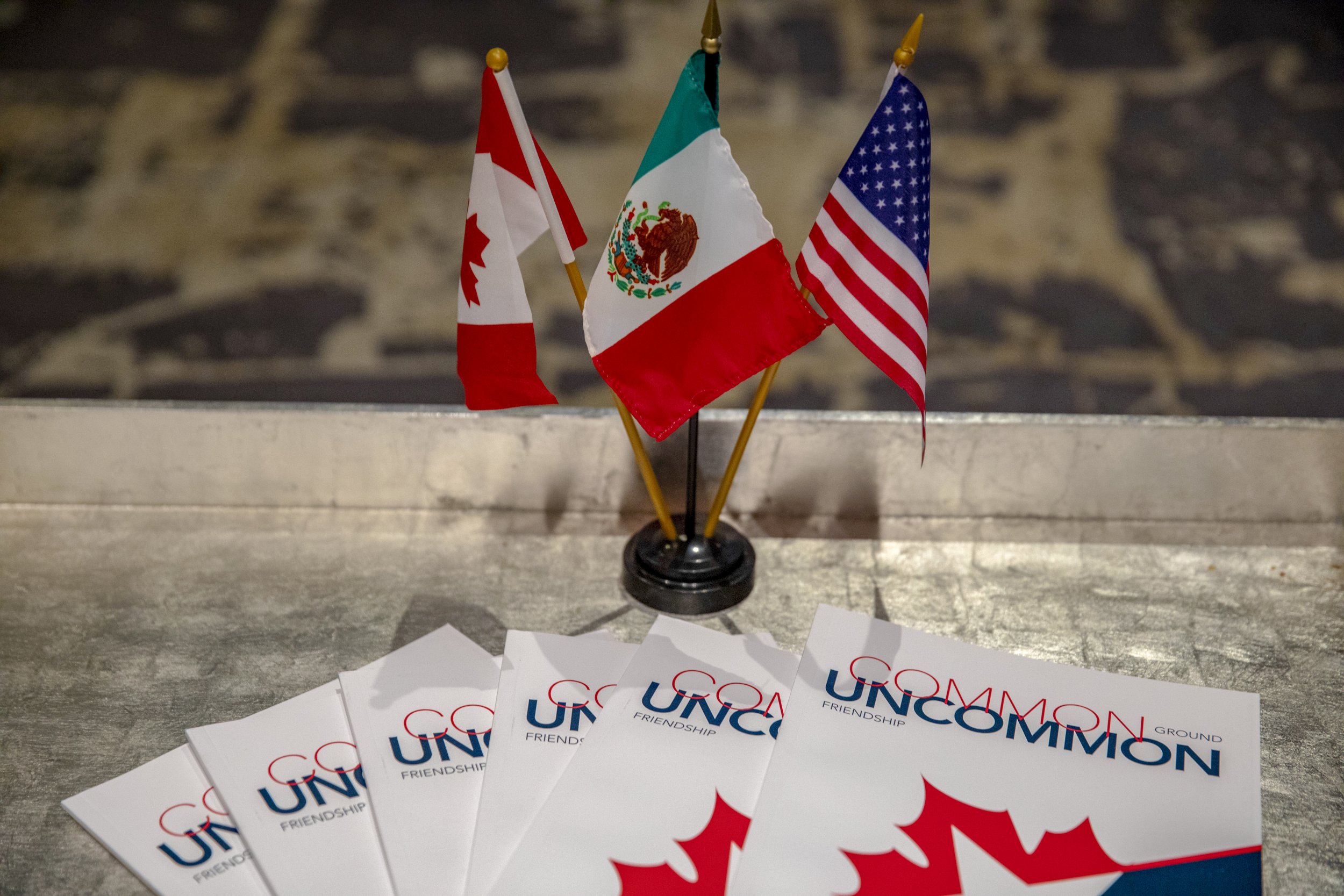
American, Mexican and Canadian lawmakers will soon have an opportunity to vote on a massive trade deal that replaces the quarter-century-old North American Free Trade Agreement.
If those lawmakers ratify the new United States-Mexico-Canada Agreement (USMCA), it'll create good jobs in all three countries. Workers in industries as disparate as agriculture, auto manufacturing, software and television would earn higher wages. And consumers would benefit from better, more affordable products.
NAFTA removed numerous barriers to trade and business development. Today, the deal is responsible for more than $1.2 trillion in trade among the United States, Mexico and Canada each year.
But the global economy has changed since NAFTA went into effect in January 1994. The internet has revolutionized the way consumers purchase goods and services. Today, people can order virtually any product from online retailers and have it delivered within days or even hours. When NAFTA was written, Amazon didn't exist. Many people hadn't heard of the internet. The fax machine played a major role in communications. As a result, NAFTA contained few provisions related to e-commerce.
Such economic transformations explain why businesses in all three countries are so keen for a 21st-century trade deal.
USMCA fits the bill. The deal maintains NAFTA's most successful provisions but incorporates critical improvements. It'll strengthen the alliance here in the North American neighborhood.
Consider USMCA's section on agriculture. In 2017, the United States exported $24 billion and $19 billion worth of agricultural products to Canada and Mexico, respectively. These two countries represent America's largest and third-largest agricultural markets in the world. And these exports support 325,000 American jobs.
USMCA is a big relief to Mexico's avocado farmers, who supply Americans more avocados each year than farmers from any other nation. The deal maintains zero tariffs on agricultural products for all three nations, which helps farmers cheaply ship goods across borders. That will protect farming jobs in Mexico and lower Americans' grocery and restaurant bills.
USMCA would boost job creation and wage gains for auto manufacturing workers as well. The deal requires 75 percent of a vehicle's parts to be manufactured in North America to qualify for tariff-free treatment. That's up from the current requirement of 62.5 percent. This provision will foster job growth in all three nations.
The new deal also dictates that 40 to 45 percent of auto content sold in North America be manufactured by workers earning a minimum of $16 an hour. This provision will incentivize companies to manufacture more vehicles and vehicle parts at their U.S. and Canadian factories.
Canadian autoworkers and American consumers will benefit from another USMCA provision. Currently, NAFTA allows Canada to export about 2 million automobiles to the United States tariff-free. USMCA would raise the number of tax-exempt vehicle shipments over 30 percent. That means more jobs for workers in Canada's auto industry, which already adds $20 billion a year to the country's economy and employs 130,000 people. And it means lower sticker prices for car shoppers.
USMCA will spur small-business growth across North America. America's 30 million small businesses employ almost 60 million workers. Meanwhile, 99 percent of Mexico's economy comprises small and medium-sized enterprises. And in Canada, small and medium businesses make up 90 percent of the private-sector workforce.
Recognizing the integral role of mom-and-pop shops, USMCA devotes an entire chapter to small and medium-sized businesses. The chapter includes provisions that cut down on the paperwork for express shipments valued below $2,500 and eliminate duties and tariffs on all shipments up to 40 Canadian dollars ($30.) Lower costs and fewer administrative hassles will increase revenues, allowing firms to raise wages and hire new workers.
Purveyors of digital products, such as films, software, music and e-books, will also get a boost from USMCA. The deal exempts these goods from custom duties. As a result, businesses in IP-intensive industries—which support about 30 percent of jobs in the United States alone—will face fewer barriers when selling their products across North American borders.
USMCA is a victory for workers and consumers. The deal keeps NAFTA's most successful provisions while catapulting North American trade into the 21st century. Let's hope that lawmakers in all three nations ratify the deal as soon as possible.
Maryscott Greenwood is the CEO of the Canadian American Business Council.
The views expressed in this article are the author's own.
Uncommon Knowledge
Newsweek is committed to challenging conventional wisdom and finding connections in the search for common ground.
Newsweek is committed to challenging conventional wisdom and finding connections in the search for common ground.
About the writer
To read how Newsweek uses AI as a newsroom tool, Click here.








